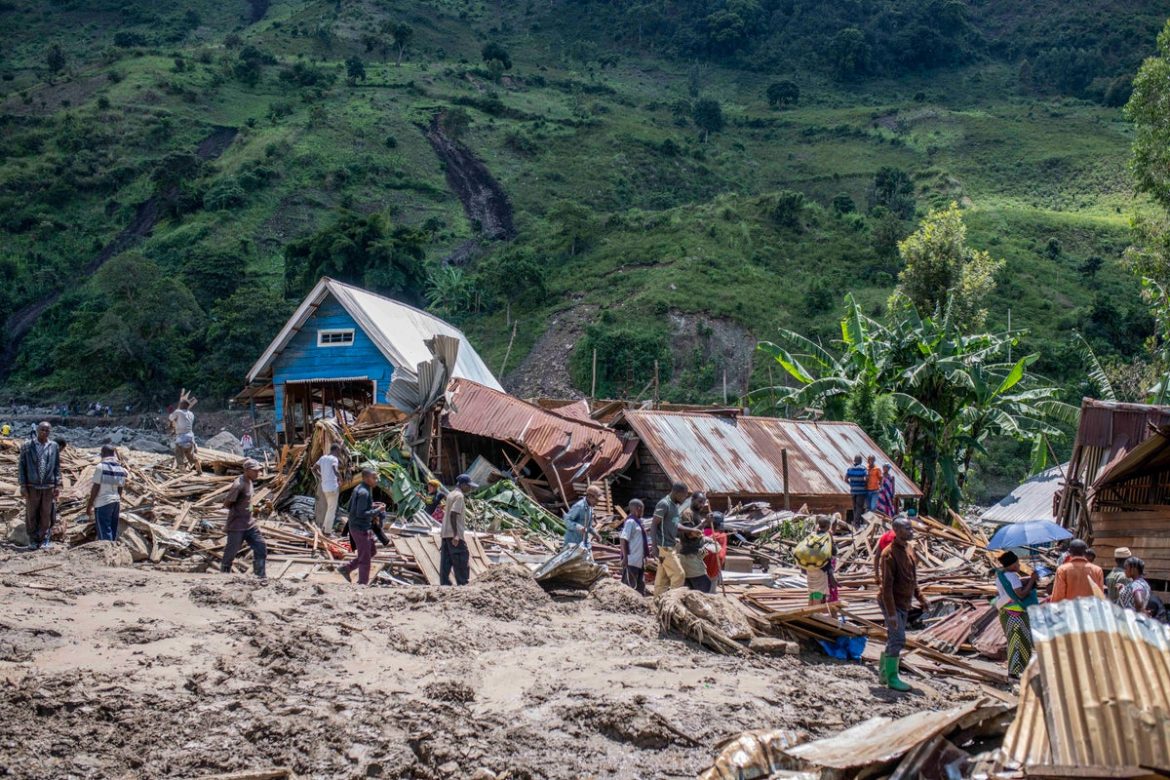At least 411 people have now been confirmed dead after intense flooding and landslides hit the Democratic Republic of the Congo’s South Kivu province last week.
According to reports, efforts to rescue inhabitants and recover bodies in Kalehe, where the flooding happened, are continuing. Some houses, schools and hospitals are also reported to have collapsed or become dilapidated or unsafe. Others were entirely swept away.
“There are some places that had houses, but you look at them now and can’t imagine that there was anything there before,” said Ulrich Crepin Namfeibona, the Médecins Sans Frontières (MSF) emergency coordinator in South Kivu.
Reports further have it that the torrential rains wiped out entire villages, along with fields of crops and livestock, leaving communities reeling. About 5,500 people are still missing, and thousands of survivors have been left homeless.
Residents of Bushushu and Nyamukubi villages, hardest hit by the disaster, have had to travel long distances on foot to evacuate to neighbouring villages – some as far as a three-hour walk away. Even motorbikes cannot navigate the area’s severely damaged pathways.
Read also: Eni faces lawsuit alleging early knowledge of climate crisis
“Some of them have relatives in the other villages, but some go there without knowing anyone,” said Namfeibona.
The infrastructure in Kalehe is poor, a situation which makes communication and access difficult when such disasters occur. About 150 people were wounded and needed medical attention.
“My biggest concern is healthcare for the injured patients,” said Namfeibona. “More than 30 needed emergency surgery yesterday and that hospitals around do not have the [technical] capacity for.”
As a result of the flooding, one of the main roads out of Kalehe has been rendered impassable, making it difficult for aid and rescue efforts. Medical teams have had to first take wounded people to a local hospital where they are triaged and wait, often for hours, until they are ferried out of the area by boat via Lake Kivu to a hospital in Bukavu town, which is a nearly three-hour boat ride away.
Many of the dead have been buried in mass graves. This has prompted pushback from some community leaders and an order by government officials for coffins to be delivered to the area.
Story was adapted from the Guardian.
